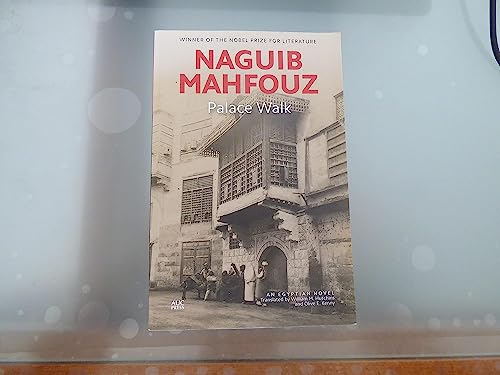


Since then, his approach has been eclectic. From 1961 to 1967, his output changed, with the pieces becoming existential and concerned with souls in a state of spiritual crisis. From 1949 to 1957, the books that Mahfouz produced were semi-autobiographical works of social realism. What examples do you find in his writing that lead you to believe that there is a more "Western" sensibility at work here?ġ0. While on the one hand they were both pleased and proud that one of their own had achieved such recognition, on the other they wanted the world cautioned that his political views were not necessarily representative of the average Egyptian. When Mahfouz was awarded the Nobel Prize, many Arab and Egyptian intellectuals responded with mixed feelings. Why do you think he does this? What effect does he achieve through the employment of this universal tongue?ĩ. Yet he chooses to imbue all of his characters with a language that is considered to be classical literary Arabic as opposed to the colloquial dialects that would be more natural to their stations in life. Many of Mahfouz's characters are derived from the lower and middle class strata of society. In his acceptance speech for the Nobel Prize for Literature in 1988, Mahfouz stated: "Man remembers what hurts more than what pleases." In what ways is this dictum borne out in his writings?Ĩ. How does Mahfouz's literary rendering of Egypt affect your political perception of the country? Does it alter any preconceptions you may have brought to the work for better or for worse?ħ. My work was shaped by being so Egyptian." Focusing on the particular works you have read, in what ways do you imagine the tone of the narrative and the perspective might change had the text been written by a more "worldly" author?Ħ. Mahfouz once said "If I had traveled, like Hemingway, I'm sure that my work would have been different. Does this appear to be true in the novel(s) you have read? How would you characterize the women in Mahfouz's fiction?ĥ. It has been suggested by many writers that there is a great contrast between the men and the women in Mahfouz's novels that the men are weaker and more flawed than the women, who are strong and dependable. What elements of this novel are unfamiliar/alien to you? Do these merely reflect cultural differences or do they also address larger, more universal themes?Ĥ. What did you find familiar in Mahfouz's stories? What parallels can you find in your own culture or experience to the life in Egypt he describes?ģ.

How would you identify the novel you are reading in terms of style and genre? What does it have in common with Western literature you have read? What about it appears to be particularly "Middle Eastern"?Ģ.


 0 kommentar(er)
0 kommentar(er)
